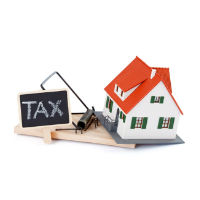The Property Council of Australia has presented mixed messages about the Victorian Government’s Budget released yesterday (2 May).
While the association welcomed the commitment towards infrastructure and housing, it warned against the government’s addiction to revenue from property taxation.
“The government is to be congratulated on investing in key industries that will provide jobs across Melbourne and regional Victoria,” said Victorian executive director for the Property Council, Sally Capp.
She cautioned against the state government’s current over-reliance on the property sector to fund its ambitious expenditure however.
“This is a give and tax budget. It’s important to invest in the community, but we need to keep growing jobs in Victoria. Increasing the cost of industry doing business decreases the number of new jobs. We call on the government to be more innovative in the way they fund their community programs, and reduce their reliance on property tax.”
At the moment, 44% of revenue in the state budget comes from property tax, Capp told
Australian Broker.
“You can see that as property values have risen, that has worked very well but obviously there’s always a risk.”
While there were a lot of initiatives proposed to take the heat out of the property market, it was ironic that any resulting turndown of property prices would significantly impact state government revenues, Capp noted.
The budget as a whole was a missed opportunity to deliver meaningful taxation reform, she said, an aspect which hadn’t been reviewed in over 15 years.
“Land tax has reached record highs and is long overdue for reform. Bracket creep needs to be addressed and the top rate of 2.25% must be dropped as a matter of fairness for all Victorians,” Capp said.
The move by the government to prioritise first home buyers could adversely impact mum and dad investors, small businesses and renters.
This priority saw the state government announce support schemes for first home buyers, allocating $851m to abolish stamp duty for the purchase of homes valued up to $600,000 and cuts to stamp duty for dwellings worth more than that.
An additional $50m was allocated to double the First Home Buyer Grant to $20,000 in regional Victoria to support up to 6,000 first home buyers.
“Those elements are very much the cornerstone of the Budget. They’re a major platform around housing affordability. Ironically, we think it might have the other outcome,” Capp said.
The Budget also proposed a property tax on vacant dwellings. This tax would be worth 1% of the property’s capital-improved value and will come into effect on 1 January.
Capp said these types of policies were mostly a PR exercise about trying to create supply.
“There is nothing in the data we’ve collected to show that there are huge amounts of properties sitting vacant. We also know this because if you are Australian, you cannot access any negative gearing benefits unless you are renting property out.”
The number of people accessing these benefits is a good sign that there are plenty of properties available for rent, she said. There were also a number of reasons for why a property might be left vacant and unavailable for rent – many of which are recognised as exceptions by the government.
“This really only leaves a marginal group: foreign investors who may have purchased a property and left it vacant. Just looking at the overall housing structure of Victoria, this is a very small percentage.”
In the end, these types of policies are a way to tax non-voters in Victoria, she said.
Related stories:
New blueprint laid out for housing affordability
Stamp duty back in firing line
Victorian stamp duty exemption could push up property prices


